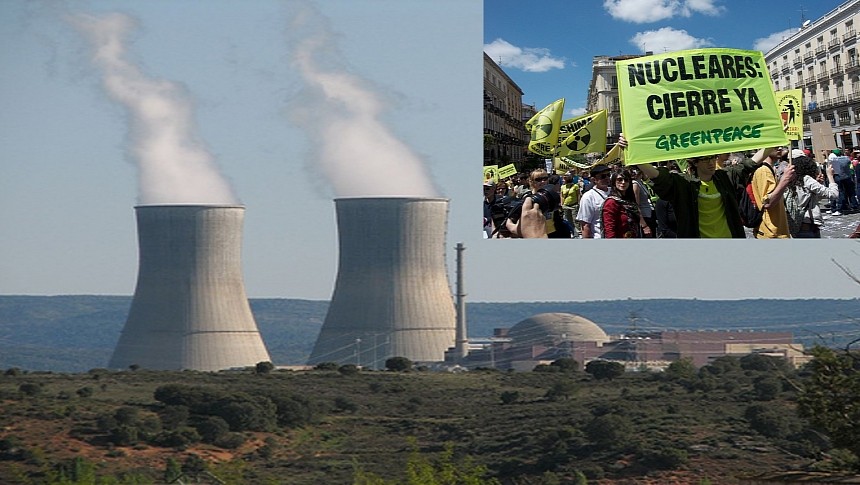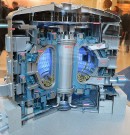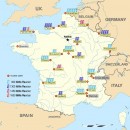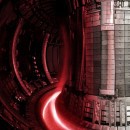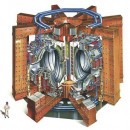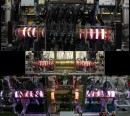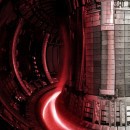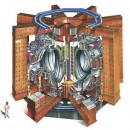As per a report first broken by Reuters, the Government of Spain reached an agreement this week to officially begin sun-setting the nation's commercial nuclear energy grid in favor of more conventional forms of renewable energy. Per the agreed-upon terms, Spain's current fleet of seven active commercial fission reactors will soon begin a gradual process of prepping each facility for decommissioning before a comprehensive waste cleanup process ensures harmful fissile fuel doesn't enter surrounding ecosystems.
If all goes to plan, each of Spain's active reactors will be completely shut down by 2035 at the earliest. In the meantime, a means of compensating for the 20.2 percent of Spain's energy expenditures is a key priority of the Spanish Government run by the five-and-a-half-year incumbent Prime Minister Pedro Sánchez. The question of how to fill this gap of a fifth of Spain's total energy needs was a hot-button point of contention during the most recent Spanish election, in which a consortium of conservative opposition from the Spanis People's Party decreed it would reverse the proposed nuclear phase-out process in the event they rose to power.
But with a stronghold in the Spanish Senate and Regional Parliament, the Spanish Socialist Workers' Party's national energy agenda, of which Pedro Sánchez is the Secretary-General, is set to commence starting at an as-yet-announced point in 2024. Under the deal, domestic Spanish programs for renewable energy projects, which once had looming deadlines as close as six months away, have seen these increase to as many as 49 months to account for the substantial bump in energy expenditures expected out of Spain's non-nuclear future energy programs.
With initiatives in solar, geothermal, wind, and hydroelectric energy native to Spanish soil, whether or not eco-friendly forms of energy production can truly account for a fifth of Spain's energy remains to be seen. Meanwhile, the rest of Western and Central Europe seems just as contentious over the atomic energy question as either side of the debate in Spain. In Germany, its final domestic commercial nuclear reactor was shut down on April 15th, 2023, marking an end to a German atomic energy sector that stretched back to the Cold War in the 1960s.
Meanwhile, across the border in France, sentiments around nuclear reactors couldn't be any different if they tried. With total expenditures accounting for what's cited as between 62 and 70 percent of France's energy, even future plans that call for scaling back the total number of domestic fission reactors would only bring its share down to 50 percent. Whether France, Germany and also the United Kingdom come to regret their decisions to scale back their nuclear sectors by 2030 won't be clear for some time. But it's hard to argue the impact of nuclear energy legislation will be a meltdown-level issue for European voters for decades to come.
But with a stronghold in the Spanish Senate and Regional Parliament, the Spanish Socialist Workers' Party's national energy agenda, of which Pedro Sánchez is the Secretary-General, is set to commence starting at an as-yet-announced point in 2024. Under the deal, domestic Spanish programs for renewable energy projects, which once had looming deadlines as close as six months away, have seen these increase to as many as 49 months to account for the substantial bump in energy expenditures expected out of Spain's non-nuclear future energy programs.
With initiatives in solar, geothermal, wind, and hydroelectric energy native to Spanish soil, whether or not eco-friendly forms of energy production can truly account for a fifth of Spain's energy remains to be seen. Meanwhile, the rest of Western and Central Europe seems just as contentious over the atomic energy question as either side of the debate in Spain. In Germany, its final domestic commercial nuclear reactor was shut down on April 15th, 2023, marking an end to a German atomic energy sector that stretched back to the Cold War in the 1960s.
Meanwhile, across the border in France, sentiments around nuclear reactors couldn't be any different if they tried. With total expenditures accounting for what's cited as between 62 and 70 percent of France's energy, even future plans that call for scaling back the total number of domestic fission reactors would only bring its share down to 50 percent. Whether France, Germany and also the United Kingdom come to regret their decisions to scale back their nuclear sectors by 2030 won't be clear for some time. But it's hard to argue the impact of nuclear energy legislation will be a meltdown-level issue for European voters for decades to come.
